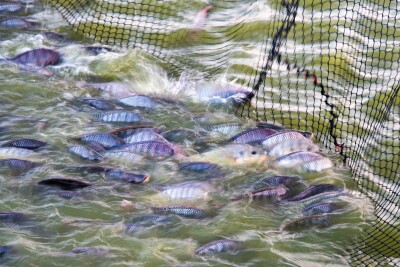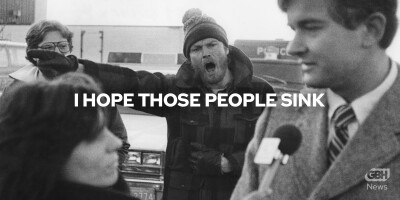Bulldozing common ground
I was disappointed, though not surprised, when I read a news account recently in which commercial clammers were accused of "strip-mining" Chesapeake Bay with their hydraulic dredges.
A strip mine is an open pit in which a seam of mineral ore near the surface is removed from the ground. Strip-mining creates ugly holes in the terrain around which detractors of the practice unite in opposition.
A hydraulic clam dredge, on the other hand, uses pressurized water to flush clams from the seabed. Dredging has impermanent effects on the seabed, although in the Chesapeake, there is an issue around sea grass.
The point is, comparing clam dredging to strip-mining is neither informative nor helpful. It does not say, "As users of the bay, we're all in this together." Rather, it says, "Let's all shoot to kill; there is no common ground."
To be sure, sport fishermen of the Chesapeake who support efforts to end dredging are hardly alone in relying on inflammatory rhetoric and figures of speech.
The anti-trawl brigades have been wallowing in falsehood, metaphor and hyperbole for years, and at one point bamboozled this magazine into a cover illustration of a bulldozer on the seafloor. (Shame on us!)
It is, however, illustrative to consider the supposedly scholarly comparisons of trawling the seafloor to clear-cutting forests.
Clear-cutting, at least in the minds of many advocates for the environment, is what might more precisely be described as deforestation.
Trawling is much more like a harvest, except that the ground — or seabed — isn't tilled nearly as much as it is in a farmer's field.
Truth is, there is little to be gained by comparing the two practices, whether in the Maine woods or on Georges Bank, and less in the way of supportive data.
But the image of a deforested landscape, once seared into the mind of a well-intentioned but guileless public, is hard to erase.
How'd you like to chop bait for 1.5 billion longline hooks — the number the Pew Charitable Trusts has asserted are out there luring sea turtles to their doom in a given year?
Sounds like a lot of hooks, doesn't it? You'll find numerous breathless references to the "sheer size" of the world's pelagic longline fleet, but numeric estimates are in shorter supply.
The most recent estimate that I could find (1995), from the U.N.'s Food and Agriculture Organization, put the fleet size at just under 5,000. If you do the math, that works out to 300,000 hooks per vessel.
Sounds like a lot to me.
Is it possible that our friends and neighbors at the Pew Charitable Trusts have been spreading sea stories? You can forget the more important issue of how much damage pelagic longliners actually inflict on sea turtles, because the public doesn't care anymore: It has been convinced that pelagic longlines are barbed curtains of death wrapping themselves throughout the world's oceans, and no amount of dissembling by greedy, often Republican-leaning capitalists is going to change that.
Ah yes! Which brings us to the issue of "industrial" fishing.
When I was a lad, I was taught that being industrious was a good thing, that the Industrial Revolution was an age of great human progress, and that industries provided jobs.
Yet industrial fishing, we are told today, is the scourge of the Earth.
Sometimes polemicists exaggerate the meaning of a word. In the case of "industrial" fishing, however, they have discarded its meaning altogether in order to create an image of over-productivity, waste and willful disregard for the environment.
They won't use those terms, however, because they are far too specific and by their simple rebuttal would give the lie to their message. So once again, a convenient if inappropriate metaphor is employed and a misperception is ingrained.
I hope I've made my point. My great regret is that the misleading (if not mendacious) language used against commercial fishermen in this country, more so than the individual words themselves, speaks to the willingness of opponents of this industry to use polarizing tactics and to portray conservation as an all-or-nothing proposition.
There is no such thing as balance, apparently, no notion that there are benefits to the production of food that may more than justify quantifiable impacts on marine ecosystems.
There is no interest in exploring possibilities, it seems, only in winning arguments.
That's a frightening proposition. We do not have the bully pulpit in this industry, no cable channel comes calling for our side of the story.
We have only the truth, and as we know, that's the first casualty of war.
— Jerry Fraser






